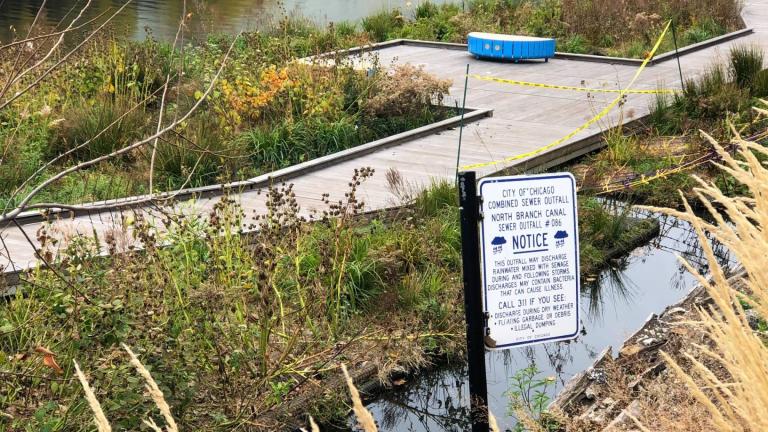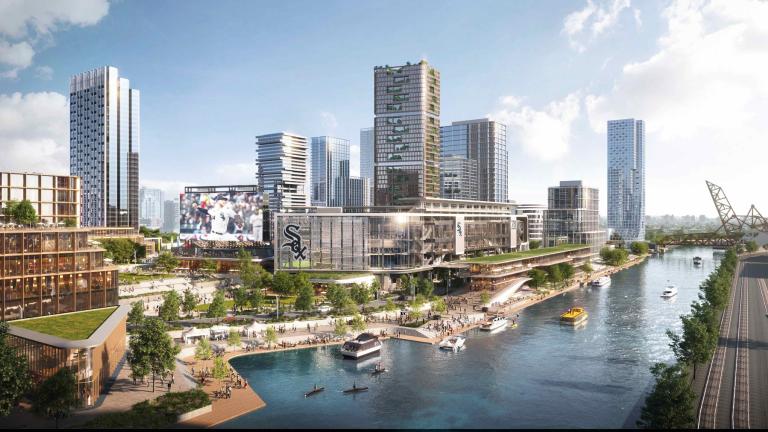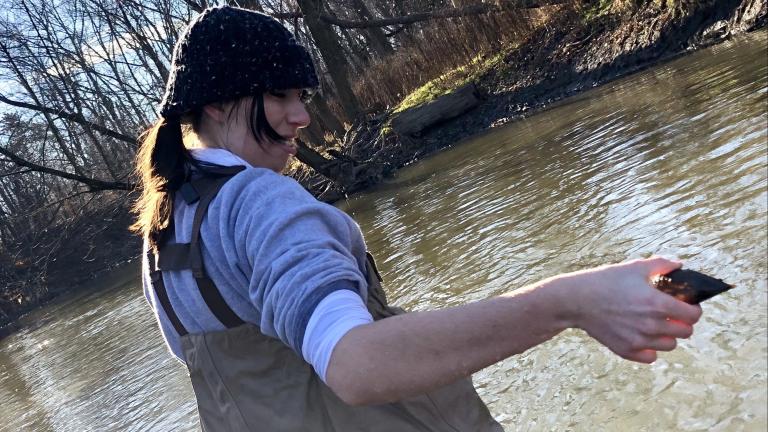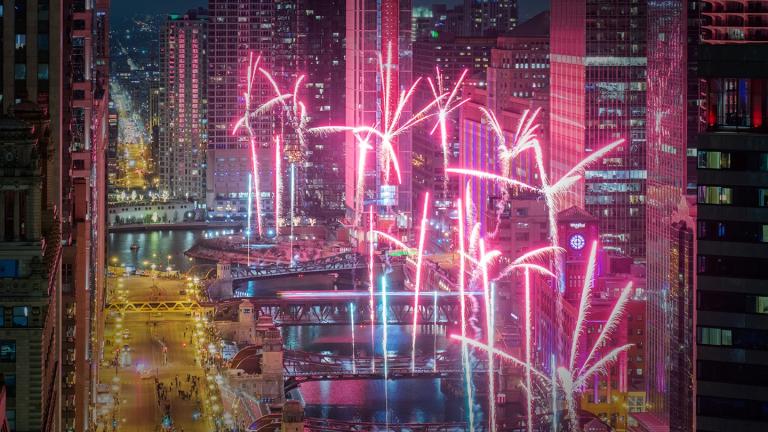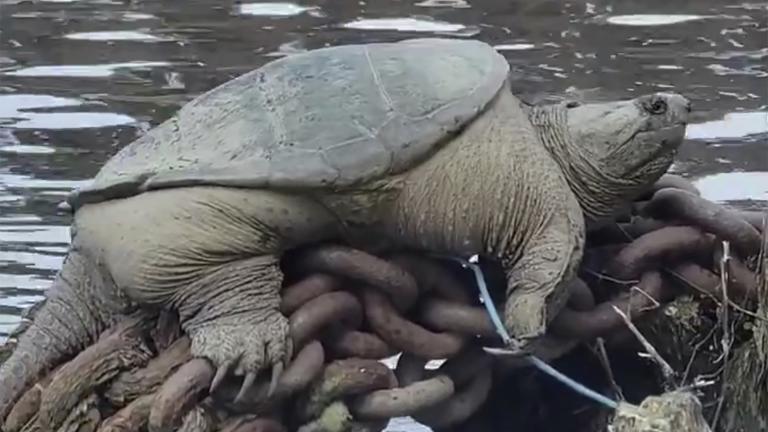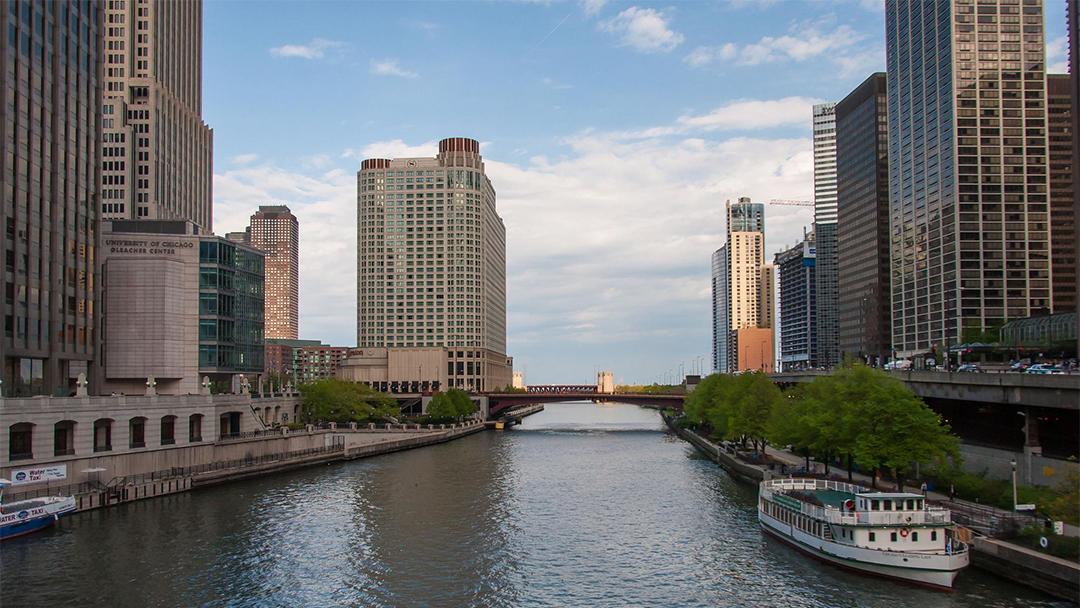
The decadeslong fight to clean up the Chicago River took a step forward last week with the resolution of two lawsuits targeting phosphorous discharge that has polluted waters from Chicago to the Gulf of Mexico.
On Jan. 19, members of the Metropolitan Water Reclamation District of Greater Chicago’s Board of Commissioners voted to increase pollution controls and monitoring at its largest wastewater plants by 2030. The plan is part of an agreement between MWRD and several environmental organizations that resolves litigation over pollution at three of MWRD’s Chicago-area sewage plants.
“Our local waters have been a poster child for the national problem of phosphorus pollution, but now we have a chance to be a model for the solution,” said Ann Alexander, senior attorney at the Natural Resources Defense Council (NRDC), one of six plaintiff organizations in the lawsuits. “If you can fix this in a waterway with a reputation like the Chicago River, it means you can clean up any river.”
In exchange for a dismissal of one lawsuit, MWRD also agreed to pay more than $1.7 million in attorneys’ fees.
“I want to commend our staff and our outside counsel for bringing this forward,” said MWRD Commissioner Debra Shore at the board’s Jan. 19 meeting. “I want to thank the conservation community for their assertive advocacy, for their really pushing the district to get to this point where I think we will benefit the Chicago area waterways. We’ve come a long way with disinfection and with bringing the reservoirs online so that water quality is better, but this will bring us even further. So it’s a big day.”
Despite investments in clean water infrastructure, the Chicago River system has remained polluted by excess amounts of phosphorous and other nutrients from wastewater plants. Phosphorous discharges at the plants cause overgrowth of algae, producing toxins that can be dangerous to people and animals, according to the Environmental Protection Agency.
Pollution from the plants wind up in Chicago’s waters and in downstream waters, like the Des Plaines River, Illinois River and, eventually, the Gulf of Mexico, according to the website of Prairie Rivers Network, one the plaintiff groups.
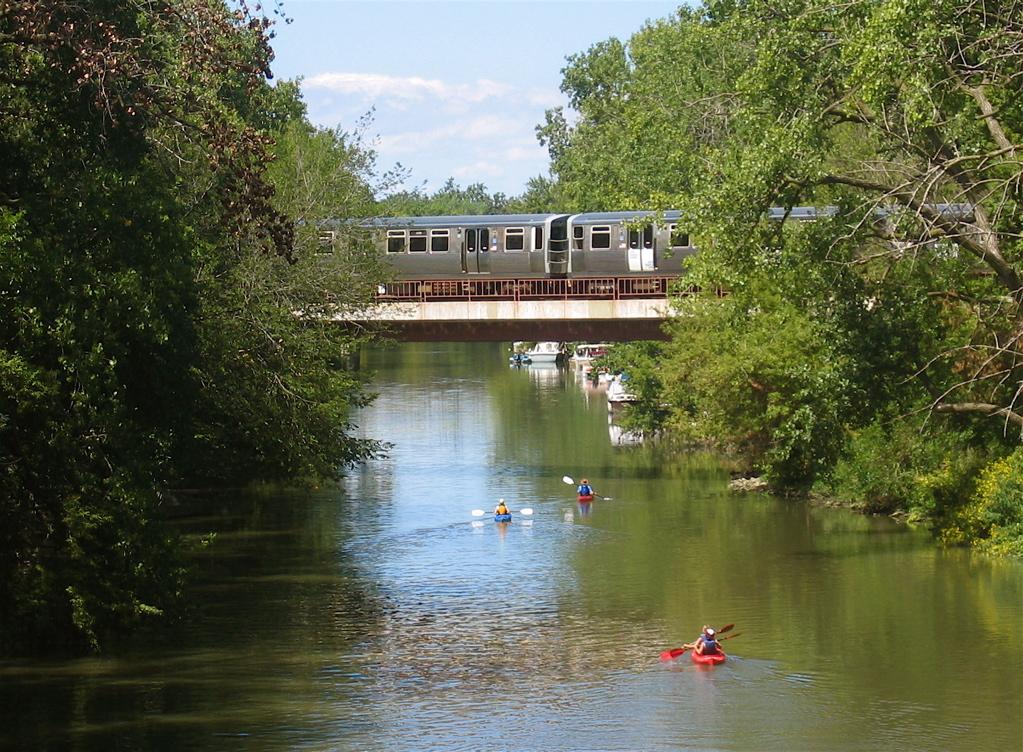 North Branch of the Chicago River (Jeremy Atherton / Creative Commons)
North Branch of the Chicago River (Jeremy Atherton / Creative Commons)
In response to two pending lawsuits – one in U.S. District Court and one before the Illinois Pollution Control Board – MWRD agreed to work with environmental groups to reduce phosphorous discharge from its plants.
MWRD will upgrade pollution controls and conduct water quality monitoring. It also agreed to hire scientists and engineers to study the Chicago River system and present a plan to eliminate harmful algal and plant issues.
The study will also determine the feasibility of MWRD reducing its phosphorous discharge limit by 10 times, a move that would fall in line with more stringent limits in other parts of the U.S.
“Our members love to paddle on our local waterways, but the disgusting, smelly algae that blooms every summer can really get in the way of their enjoyment,” said Kim Knowles, staff attorney with Prairie Rivers Network, in a press release. “We’re glad to finally be headed toward a long-term solution.”
Other plaintiff organizations were the Sierra Club, the Environmental Law and Policy Center, the Gulf Restoration Network and Friends of the Chicago River. One suit alleged that MWRD had violated provisions of the Clean Water Act; the other suit appealed permits issued to MWRD by the Illinois EPA in 2013.
“This settlement signals a positive change toward improving the way permits are written to protect Illinois waters,” said Jessica Dexter, staff Attorney at the Environmental Law and Policy Center, in a press release. “We expect other dischargers to follow suit and be part of the long-term solution to rid algae overgrowth from our waterways.”
Follow Alex Ruppenthal on Twitter: @arupp
Related stories:
 City Unveils Plans to Revitalize Chicago’s Waterways by 2040
City Unveils Plans to Revitalize Chicago’s Waterways by 2040
Aug. 17: A plan that aims to allow swimming in Chicago’s waterways in less than 15 years was unveiled by the city and partnering nonprofits.
Feb. 25: The Chicago River is far from America's cleanest waterway. But a few anglers are trying their luck as its ecosystem improves. Captain Tim Frey took us for a winter fishing trip on the river.
 Invasive Fish on the Menu at Asian Carp Grill Event
Invasive Fish on the Menu at Asian Carp Grill Event
Aug. 18: Adventurous eaters concerned about Asian carp entering the Great Lakes will have a chance to devour the invasive fish at a special event held along the Chicago River next week.

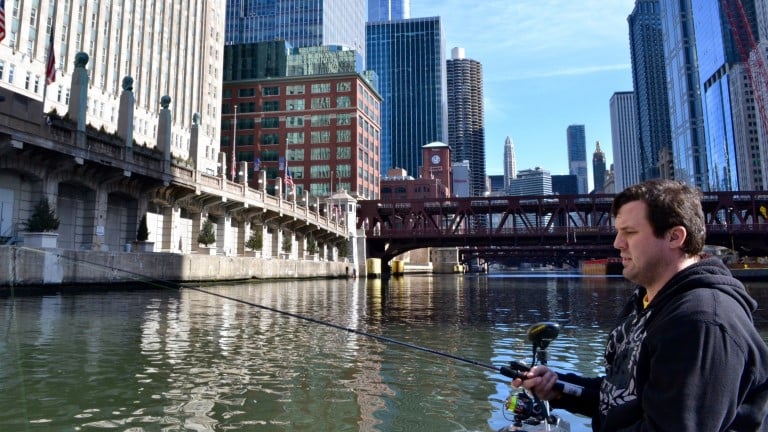 Fishing on the Chicago River
Fishing on the Chicago River 